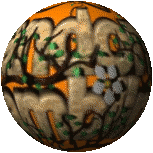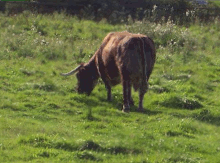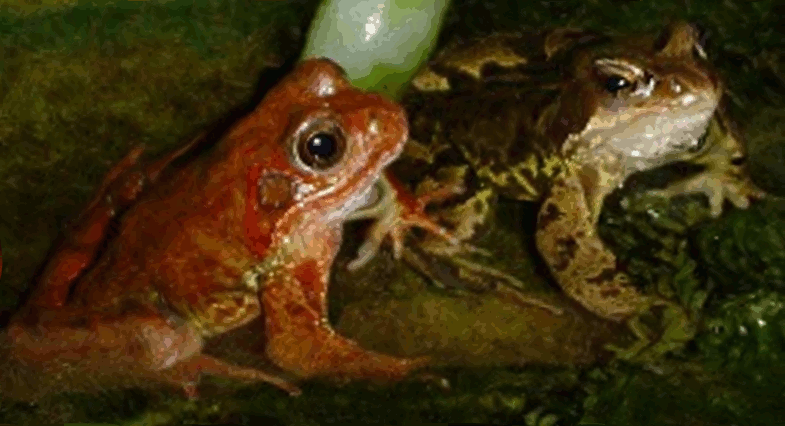This is the very first year that I have not heard one cuckoo and although their very habits could almost be straight from a horror movie, I can honestly say I have missed their distant haunting call. For those who are not familiar with the cuckoo then their lifestyle is like no other bird. Firstly, it spends its Winters in Africa. The younger males reach British shores the second or third week of April and taunt us all. In flight it is often mistaken for the sparrowhawk but looks slightly heavier in motion added to which it has a long, pointed tail and wings. When it courts it gives out a dual note in its ‘cuckoo’ call, this is the male calling to it’s Jen, the female. The female call is a happy warble or trill.
The parents never build a nest – but it is known that with experience, the female will often look for the nests of species where her forebears have successfully had young raised. They have the capacity to almost mimic the eggs of the birds whose nests they choose to hatch and rear the one egg they deposit. There are over fifty different species that cuckoos eggs have been found in. The mother cuckoo will steal one egg from the nest that she chooses so there is less chance for the foster parents to suspect anything is wrong. Once the young cuckoo has hatched out (even though it is all skin and weak looking), its one intent is to clear the nest – so whether there are remaining eggs or off-spring of its foster parents it will hoist up the living bundles onto a hollow in its back and throw them onto the ground. The cuckoo is a murderer! The baby cuckoo then has the entire attention of its foster parents who proceed to feed it with a frenzy as it grows for three weeks until it fledges. They continue to support it for a further week or so until it is fully independent.
Around the time of Midsummer the parent cuckoo will change their tunes. There is a little rhyme that is taught to remind us all of this … here are two versions of it:
The cuckoo comes in April She sings her song in May In the middle of June she whistles her tune In July she flies away
The cuckoo comes in April She sings her song in May In June she changes her tune In July she prepares to fly In August go she must.
The last of the adults fly back to Africa in early August followed by the newly fledged birds in September. The young migrate unaided and alone.
One of the oldest rhymes that I have found dates back to around 1200. Sadly, to the best of my knowledge, the author is unknown. Here it is – in very old English style:
The Cuckoo ................
Summer is y-comen in, Loude sing, cuckoo! Groweth seed and bloweth meed And spring’th the woode now- Sing cuckoo!
Ewe bleateth after lamb, Low’th after calfe cow, Bullock starteth, bucke farteth. Merry sing, cuckoo!
Cuckoo, Cuckoo! Well sing’st thou, cuckoo: Ne swike thou never now!
Sing cuckoo, now! Sing, cuckoo! Sing cuckoo! Sing, cuckoo now!
The parents never build a nest – but it is known that with experience, the female will often look for the nests of species where her forebears have successfully had young raised. They have the capacity to almost mimic the eggs of the birds whose nests they choose to hatch and rear the one egg they deposit. There are over fifty different species that cuckoos eggs have been found in. The mother cuckoo will steal one egg from the nest that she chooses so there is less chance for the foster parents to suspect anything is wrong. Once the young cuckoo has hatched out (even though it is all skin and weak looking), its one intent is to clear the nest – so whether there are remaining eggs or off-spring of its foster parents it will hoist up the living bundles onto a hollow in its back and throw them onto the ground. The cuckoo is a murderer! The baby cuckoo then has the entire attention of its foster parents who proceed to feed it with a frenzy as it grows for three weeks until it fledges. They continue to support it for a further week or so until it is fully independent.
Around the time of Midsummer the parent cuckoo will change their tunes. There is a little rhyme that is taught to remind us all of this … here are two versions of it:
The cuckoo comes in April She sings her song in May In the middle of June she whistles her tune In July she flies away
The cuckoo comes in April She sings her song in May In June she changes her tune In July she prepares to fly In August go she must.
The last of the adults fly back to Africa in early August followed by the newly fledged birds in September. The young migrate unaided and alone.
One of the oldest rhymes that I have found dates back to around 1200. Sadly, to the best of my knowledge, the author is unknown. Here it is – in very old English style:
The Cuckoo ................
Summer is y-comen in, Loude sing, cuckoo! Groweth seed and bloweth meed And spring’th the woode now- Sing cuckoo!
Ewe bleateth after lamb, Low’th after calfe cow, Bullock starteth, bucke farteth. Merry sing, cuckoo!
Cuckoo, Cuckoo! Well sing’st thou, cuckoo: Ne swike thou never now!
Sing cuckoo, now! Sing, cuckoo! Sing cuckoo! Sing, cuckoo now!















































3 comments:
I really enjoyed reading this post. I didn't know cuckoos behave like that..^^
Didn't know that about the Cuckoo! Very interesting.
You have an award. Stop by and pick it up: http://mothernosbest.blogspot.com/
Thank you so much for the visit and advice. I'm happy you liked Snapping Panda. Those inspirational words would keep me blogging.
Your random ramblings are worth-sharing, too! I'm so glad I bumped into your blog. One of the bests.
Post a Comment